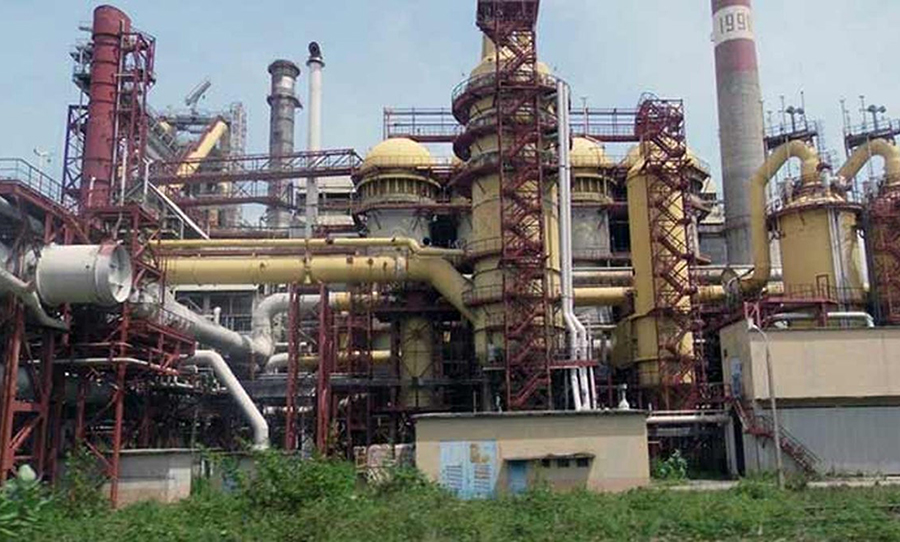Ajaokuta should be a blessing to Nigeria, not a burden. So, why did we choose the latter over the former?
Who has ever disrespected and abused an architect and builder who laid the foundation of a structure and then succeeded in completing the building they didn’t design? Whoever did, and why would anyone decide to turn to other builders to help complete what they never started when the original architect and builder are willing to see it through to the end? Painfully, whenever others get involved, they deviate from the original design. Why? There must be a fundamental error with the owner of the structure who is unwilling to stick to the master plan.
These questions trouble the minds of many Nigerians who care about the gigantic project – Ajaokuta Steel Company Limited, in terms of its significance to the nation’s economy. Brought to life by the government of Alhaji Shehu Shagari, it was intended to make Nigeria a major or leading industrial nation in Africa and possibly the world. Unfortunately, it remains a dream to date, and instead of being a blessing, it has become a burden.
For years, government after government, the songs have always been “they will”, “will” and “will”, but unfortunately, no “is”. Even when they sing the songs of “they will”, they do so with those who have no idea of the design, not with the original architect and builder of the project. This recurring pattern calls for critical questioning of the approach deployed in solving the challenges facing Ajaokuta – the same pattern over and over, without getting results.
- Mo Abudu appointed Guest Programmer for Oscar’s organiser’s Academy Museum
- Abuja no longer safe, Nigeria under siege
Annoyingly, they repeat the same approach whenever there is a new captain to sail the ship to a safe and productive harbour. For many concerned Nigerians, in plain language, are there hindrances in the understanding with the company that started the project? If there are, can’t they be resolved to get this project up and running, or are the Nigerian leaders letting these “hindrances” persist to make money out of it? Is Ajaokuta one of the channels for milking the country, or what else should Nigerians conclude if there is no new approach to addressing the situation?
Official and unofficial reasons have been given as obstacles confronting the successful full-fledged take-off of Ajaokuta Steel Company Limited, ranging from conspiracy theories and internal political matters to allegations of corruption. However, to critical Nigerian minds, the most obvious obstacle is that our leaders and those directly in charge consistently follow the same approach, desiring different results from their predecessors.
Yes, hopes are given, but there is no change in approach to solving the lingering problems. Are there no records to inform the Honourable Ministers who come on board of the measures taken so far, the ones that worked and the ones that didn’t? Are there no records to tell these Honourable Ministers of past collaborations, sales, partnerships that never worked, and instances where the nation was convinced to pay for ineffective engagements?
Are there hidden reasons why successive ministers always desert the master planners of the Steel Complex that Nigerians are not aware of? Do classified records instruct them to start new projects within Ajaokuta while leaving the master project unrealized? What is actually the problem that no one seems to know? What has Ajaokuta done to deserve this treatment? The negative impact of this treatment is hitting the country’s economy heavily because every year, money goes there, and we gain nothing as a nation. This ugly cycle may continue if nothing new is done, and it will be painful if the second indigenous minister from the host state, directly in charge of the ministry overseeing Ajaokuta, fails to revive it.
I give credit to President Bola Ahmed Tinubu’s decision to leave Ajaokuta in the care of someone from the host state. For many reasons, it poses more of a challenge to the minister in charge to make it work or live with the shame of failure. I wish he succeeds, except for singing the same songs as the past Honourable Ministers.
There’s a need for a fast recalculation and reprioritizing if Ajaokuta must come to life under this administration or while this current minister is in charge—the honest truth considering all past patterns. Remember, not even the one who openly cried could bring the change as many thought his passion would make a difference, but he left and was singing the same songs.
Even though these songs are becoming monotonous and uninspiring to the ears of many Nigerians, in stanzas 2 and 3 (if ever out), they will resort to regular name-calling and the roles played by many actors, both past and present.
Onoja Okpanachi, President Development Journalism Initiative, wrote from Abuja

 Join Daily Trust WhatsApp Community For Quick Access To News and Happenings Around You.
Join Daily Trust WhatsApp Community For Quick Access To News and Happenings Around You.


